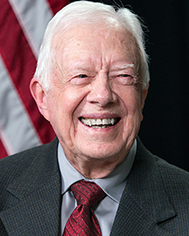That web page also includes some questions for which DCH wants public input.The Department of Community Health (DCH), Healthcare Facility Regulation Division (HFRD) invites you to attend a Town Hall Meeting on the topic, “Establishing Meaningful Distinctions for Levels of Care in Licensed Personal Care Homes, Assisted Living Communities and Nursing Homes”. The Town Hall Meeting will be held in the DCH Board Room, 5th Floor, 2 Peachtree Street, NW on Wednesday, June 22, 2011 at 11:30 a.m.
The purpose of this Town Hall Meeting is to provide a forum where interested consumers, providers, advocates, stakeholders and regulators may discuss the topic informally. This informal dialogue will assist the DCH in its development of proposed rules for personal care homes and assisted living communities as a result of the passage of SB 178 which creates a licensure category called assisted living communities. Of course, any rules that the DCH ultimately develops would be taken through an informal rules advisory group process and the public rule-making process. If you are unable to attend the Town Hall Meeting, but would like to provide input on this topic, please feel free to send your input electronically to DCH staff using the following email address: sedoughe@dhr.state.ga.us.
-jsq







